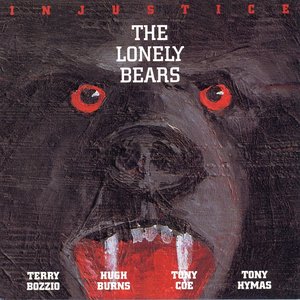Published on Jul 18, 2000
The album
Jeff Beck’s Guitar Shop did more than re-introduce a guitar
legend to a new generation of fans. It started a musical
partnership between former Frank Zappa drummer Terry Bozzio and
Beck’s keyboardist Tony Hymas that became one of progressive rock’s
most influential — and surprisingly unheralded — groups, The
Lonely Bears. With guitarist Hugh Burns and saxophonist Tony Coe,
the group produced three albums that have taken the lessons artists
like Miles Davis wrote and taken them to the next step. As a
result, many groups in the instrumental prog-rock genre — perhaps
unconsciously — have somewhat based their sound on this group.
Yet their second album,
Injustice, suggests that veering off the highway onto your
own road can occasionally cause some jolts to the musical vehicle.
And while the project is overall quite enjoyable, it has its
moments where you can’t help but wonder just what this quartet is
doing — and, in a way, maybe that’s the sign that they’ve got a
good jazz vibe going.
At times, taking the road less traveled proves to be dangerous,
as tracks like “Quannah Parker” (despite subtle respecful bows paid
to the late Charlie Parker) leave the listener confused, wondering
just what is going on for six minutes. When things do finally tie
together, I fear it sometimes might be too late to reel the
listener back into the fold.
Yet there are even Zappa references in the musical phrasing, as
evidenced in the opening of “Kill King Rat,” a song that no doubt
pleased Bozzio’s musical mentor, even if the drum work occasionally
slipped into standard 4/4 pounding. Anyone familiar with Bozzio’s
work should find a good comfort level in material like this.
But
Injustice is not all about exploring unfamiliar musical
avenues. Tracks such as “Jennifer” and “Entre Le Tigre Et
L’Euphrate…” all create a mood that fits the musical scene quite
well, and allows the listener a chance to get intimately acquainted
with The Lonely Bears on their own terms. While it may have been
more beneficial to have put at least one of these pieces earlier in
the album to help ease the listener into the uncharted waters, it
still comes as a welcomed oasis.
What
Injustice serves to do is show the listener just what kind
of strides were being made in progressive jazz in the early ’90s —
and how these roads may still be unfamiliar to many people. At
times a fascinating listen, at other times an uncomfortable one,
The Lonely Bears proved they were well worth paying attention to
back then — and still are today.
